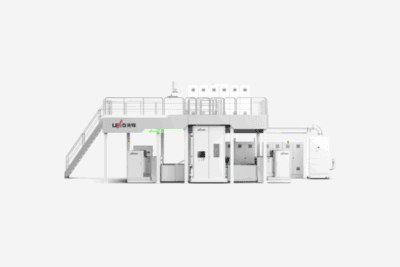EU sets the stage for comprehensive battery market regulations
The European Parliament and the member states have reached a preliminary agreement on the revision of the EU regulations for batteries. The background to the regulation is the proposals presented by the EU Commission at the end of 2020 on mandatory sustainability criteria for batteries.
Stricter environmental and due diligence requirements will apply to battery manufacturers in future if they want to sell on the European market. The new regulations aim to promote a circular economy by regulating all types of batteries – including electric vehicle batteries – throughout their life cycle. Parliament and Council now only need to formally approve the agreement before it can enter into force. However, important details still need to be clarified in a number of implementing regulations.
What is certain is that in the area of batteries used in electric vehicles, among other things, the CO2 balance must be stated in future and recycling quotas for certain materials must be adhered to. Labelling and information obligations are to be introduced that concern, among other things, the components of the battery and the recycling proportion. The EU authorities are talking about a mandatory electronic battery passport. From July 2024, the CO2 balance of the batteries from the extraction of raw materials to production and recycling must be indicated.
On the basis of this data, a maximum CO2 value for batteries is then to be set, which is to apply from July 2027. With regard to recycling quotas, the agreement of Parliament and Council goes beyond the targets proposed by the Commission in 2020: they will be set “initially” at 16 per cent for cobalt, 85 per cent for lead and six per cent each for lithium and nickel. A concrete introduction date for this regulation is not mentioned.
In addition, the bodies have formulated new EU recycling targets: From 2027, battery manufacturers must recover 90 per cent of the nickel and cobalt used, and even 95 per cent in 2031. In addition, they must recycle 50 per cent of the lithium used; by 2031, this share is to increase to 80 per cent.
The criteria mentioned are flanked by requirements for stricter due diligence obligations for battery stakeholders in the ecological and social areas. In future, market participants will have to check the origin of the raw materials they use and the working conditions in their supply chain. However, the agreement provides for an exception for small and medium-sized enterprises.
“For the first time, we have circular economy legislation that covers the entire life cycle of a product – this approach is good for both the environment and the economy,” said EU Parliamentarian Achille Variati, commenting on the result. “Our overall aim is to build a stronger EU recycling industry, particularly for lithium, and a competitive industrial sector as a whole, which is crucial in the coming decades for our continent’s energy transition and strategic autonomy. These measures could become a benchmark for the entire global battery market.”
The organisation T&E welcomes the new regulations, calling them “good news for Europe’s growing battery industry”. It says the law will ensure that the products of new European entrants cannot be undercut by imported batteries made with coal-intensive energy and in violation of human and workers’ rights.
According to T&E manager Alex Keynes, the law helps level the playing field between the European battery industry and imports, which are subject to minimal standards. “Global producers can invest in cleaner production processes and new recycling capacity in Europe knowing they will have a guaranteed market for green batteries here.”
The decision partly coincides with the Commission’s 2020 proposals: The Commission also wanted to make carbon footprint information mandatory from 1 July 2024, but batteries were not to contain minimum proportions of recycled material until 2030. Specifically, there was talk at the time of 12 per cent for cobalt, 85 per cent for lead and four per cent each for lithium and nickel.
europarl.europa.eu, consilium.europa.eu, transportenvironment.org





0 Comments